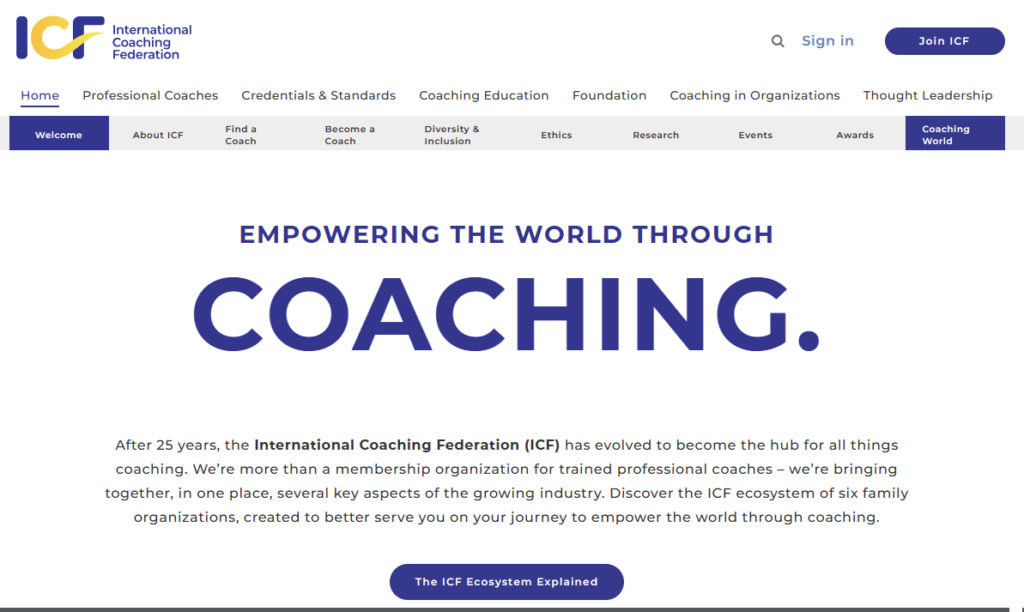Redefining Your Professional Narrative: A Mid-Career Guide to Successful Career Leaps
Overview
If you are a mid-career woman or LGBTQ professional, this might be a time in which you are asking yourself what’s important for the next phase of your career. For some of you, the goal might be to get to the next level as an executive. Others of you might want to make changes such as staying in the same industry but changing the type of company or role you’re in.
When I left my company after 15 years, I turned to executive coach, Lex Kairos, for help. His advice was really instrumental in helping me clarify my vision and getting to what I’m doing today. So, I’m really happy to have Lex join me today for a conversation about redefining your professional narrative and how to make successful career leaps.
In this 28-minute video webinar, Lex answers the following questions and more. If you’re short on time, these key points in Q&A below are broken out from content of the video:
Key Points
- Intro to Lex’s career path
- Why do people in leadership seek out executive coaches?
- How can women overcome confidence barriers to reach the C Suite?
- How do you find leadership opportunities beyond your current workplace?
- How do you balance confidence and humility in self-promotion?
- How do you make a lateral career change in a different role or industry?
- What should you do when you feel “stuck” in your career in your 40s
- What are the opportunities for diversity and inclusion in today’s professional landscape?
Transcript:
Jenni: Hi, so if you are a woman or LGBTQ professional and you’ve been in your career for 10, 15, or 20 years, this might be a time in which you are asking yourself what’s important and what you want next. For some of you, the goal might be to get to the next level as an executive, which in your company, it could be VP, could be getting to the C suite.
 Others of you might want to make changes such as staying in the same industry but changing the type of company you’re in. could be moving industry, but keeping roles. But whatever that might be, the road map for making this leap is a lot murkier than what it takes to succeed in your first half of your career, where it’s really: if you do X, you’ll most likely get to Y. But the second half is like, who knows what, choose your own adventure.
Others of you might want to make changes such as staying in the same industry but changing the type of company you’re in. could be moving industry, but keeping roles. But whatever that might be, the road map for making this leap is a lot murkier than what it takes to succeed in your first half of your career, where it’s really: if you do X, you’ll most likely get to Y. But the second half is like, who knows what, choose your own adventure.
So, when I left my company after 15 years, I turned to Lex Kairos for help. And his advice was really instrumental in helping me clarify my vision and getting to what I’m doing today. So, I’m really happy to have Lex join me today for a conversation about career paths and transitions.
So, quick intro on Lex. She is a leader in organizational leadership. She is currently a VP of people at Tailscale, which is a Series B security software company. She is also a sought after executive and leadership coach. She has 10 plus years of leadership experience working with clean and tech startups startups through IPO stage companies. Lex has an MBA from USC, a certificate in diversity and inclusion program for Cornell, and is also a certified executive coach.
Intro to Lex’s career path (1:39)
Jenni: Today we are going to talk about career growth. So could we start by, would you mind just sharing a bit of your own career path?
Lex: Yeah, absolutely. I’ve had a really non-traditional choose-your-own-adventure type of career path. I started my career out in a very different space. I was in banking and private equity doing leveraged finance and ended up in the people’s space. This could not have taken a more circuitous path to getting to where I am, but I really just followed my interests and the proverbial breadcrumbs that were like laid out before me based off of the experiences that I was having.
I think on paper it looks pretty circuitous and random, but to me it was actually a pretty clear trajectory because as I was doing the work that I was doing, I really learned that leadership is often what makes a company successful or not successful. I saw countless companies with great cashflow and a great product that just didn’t make it because they had really poor leadership teams. And so I got really interested in why that is the case. I had studied business development and had that background and so then got into executive coaching. Then eventually being on the people side, I can help shape organizations from the inside and the leadership that way. So here I am.
Why do people in leadership seek out executive coaches? (03:07)
Jenni: When working with leaders, whether in the companies you work for or as an executive coach, what do people come to you for?

Lex: Something that I’ve learned and have seen at every single company is that people often don’t know whether they have the right answers. You think because you’re in a leadership position you should know all the answers and exactly what to do, and often that’s not the case. Things are super messy. There are a lot of different factors you have to take into account.
Often leaders don’t really have anywhere else to go to have these conversations because it can be very lonely at the top. And I know CEOs in particular are often are the loneliest people at the company. I always say the Chief People Officer and the CEO are the two loneliest people at any company because we know all the things and we can’t talk to anybody else about them. So there’s a really great synergy I think that gets created by those two roles and also like the leadership team in general. Often the Chief People Officer or the person in that type of people leadership role can act as that trusted liaison or that trusted advisor. And if they have any sort of operational experience or strategic experience, they can also advise on parts of the business and the organizational structure.
I think that’s the thing I see the most, especially these days with the way the economy is where you have to kind of keep your organization and the effectiveness of the operations really running so that you can keep going.
How can women overcome confidence barriers to reach the C Suite? (04:46)
Jenni: I know that you also work with private clients when it comes to executive coaching. I know that you’ve helped women professionals kind of make these transitions. So when they’re coming to you for that, what do you often see there?
Lex: I think that women and people in the more marginalized categories that don’t have as much representation in leadership positions, don’t have good templates or molds from which to model their own careers. Like you said in the beginning of our conversation, once you get to this point and you want to move into a leadership role or you want to move into the C suite there’s no traditional path. There’s a lot of different ways to get there, there are a lot of different ways to show up but it can be hard when you don’t see people in those roles that are like you, right?
I don’t like the term imposter syndrome, but I see a lot of this disbelief in their ability to rise to that level. Or they just don’t know how. They don’t know what conversations to have, who to even go talk to, how to present themselves, how to leverage their background and their networks. All of that kind of stuff. So we work a lot on those types of things.
Jenni: Let’s dig into this more because I think that this is a very common situation where people feel some of these blockers where they don’t know how to make it to the next level. What advice would you give somebody who’s trying to make it to the next level, but is either not confident or doesn’t know how and feels stuck.
 Lex: I would say build community. Find a mentor, find a coach, find somebody. These days it’s so much easier through LinkedIn and other social networks to find one or two people who you can kind of model yourself after who are doing something that you really love. Reach out to them.
Lex: I would say build community. Find a mentor, find a coach, find somebody. These days it’s so much easier through LinkedIn and other social networks to find one or two people who you can kind of model yourself after who are doing something that you really love. Reach out to them.
Not everybody can necessarily work with a coach, but I think find somebody who has done it and who is doing it and having a meet and greet or a coffee. Reach out to them, write to them. And if you can’t get ahold of them, you can do research on how they’ve gotten there, what they’ve done, and how learn how you can start to pattern yourself after that.
Jenni: Gotcha. What else can they do?
Lex: I think putting yourself out there and getting really vulnerable and having the conversations internally. If you’re inside of a company and you have your eye on a particular role, or something that you’re really passionate about that you want to do then start having the conversations internally with the people who can help you get there. And again, that doesn’t have to necessarily be the person that you would report to or somebody who’s super senior. But find allies within the company who believe in you and who will help sort of guide and shape the conversations that you need to have, or who will speak out for you so that people can start seeing you in a different light.
I would also say start taking on opportunities to do different work. And that doesn’t mean work more or work harder. It means make yourself visible in different ways. So if you’re known for being the person who cleans up all the messes or who like does one particular job, it’s kind of up to you to start really reshaping that narrative and how people see you and putting yourself in the position to have exposure to the other types of things to be in the rooms that you want to be in.
It can be really, really hard to advocate for yourself but that’s such an important thing to do. As a coach, that’s what I work with a lot of people on, that self advocacy. Like, how do you find the language? How do you find the courage? Who do you have the conversations with at what time. There’s always like timing for these types of things. And then, just how to believe that you can ask for something and make it happen. It might take time, but you really have to start planting those seeds before you can get to the place you want to be.
How do you find leadership opportunities beyond your current workplace? (09:08)
Jenni: Yeah. One thing that you had raised in my last conversation with you is just like being creative and maybe looking for opportunities outside your actual workplace. Can you talk a little about that?
 Lex: Yeah, absolutely. I think sometimes we get caught up in trying to move up within the organization we’re in. And sometimes opportunities exist, but even if they do, it might not be the right place. Maybe those people will never see you that way, or maybe it’s not going to be the right timing.
Lex: Yeah, absolutely. I think sometimes we get caught up in trying to move up within the organization we’re in. And sometimes opportunities exist, but even if they do, it might not be the right place. Maybe those people will never see you that way, or maybe it’s not going to be the right timing.
And so just really taking a step back and maybe thinking less about, “I want to like have this title at this particular company,” but thinking more about what is it about the role? What is it about the work? What is it about the ability to be a leader that I want to have? And where else can I find that?
Maybe I want to be in a different industry. Or maybe I want to go start my own thing? I think people sometimes put themselves in boxes, right? It’s like you have a known quantity. You’ve known this one thing for a certain period of time. You’ve known this industry for a certain period of time. It can be really scary to look outside of that.
But I think that provides a lot more opportunity and also kind of gets your creative juices flowing to think is it really this title that I’m seeking or is it really this company I want to be in, or is just that I want to go do something bigger. That could be a different totally different thing than what I thought it was originally.
Jenni: Can you give like actually example of someone doing this, perhaps a client you coached?
Lex: Yeah, I have a recent example. I have worked with somebody who was in a pretty junior role doing executive assistant work and just had this dream to be a CEO one day and knew that. She had the strategic mindset and the operational capabilities, and she was supporting leaders in ways that like she could see the path for herself.
But it’s really difficult to go from EA to anything else very quickly, right? Especially when you’re in a really pretty junior. And so we worked together on starting to craft the narrative and put her in positions where she could take on the type of work that would give her exposure.
And then ultimately her intermediary goal was to become chief of staff. And she got there effectively by just continuously putting herself in the position to have the conversations to push for herself. She spent a lot of time researching like what does that person do? How would that fit within this organization? I think something that’s really important to do when you want to advocate for yourself or you want to move into a role that maybe doesn’t even exist is to be able to show the value add. Right? So like you can’t just ask somebody for something and hope that they’re going to give it to you.
That rarely happens, right? So really crafting the story of why that role is needed, what it would provide, and why she’s the right person for that role. It took a couple months of pushing and talking, then setting the stage and showing the evidence of what she created for her to get there.
And ultimately she did.
Jenni: That’s awesome. That’s a great story. What a huge, like big step in like going from an EA to chief of staff.
How do you balance confidence and humility in self-promotion? (12:25)
Jenni: I’m putting you on the spot again, but this is like your own path, right? You’ve done so many different things, like to go from doing something totally different to now VP of people. How did you manage to make your way there?
 Lex: Honestly sometimes I think it was just hubris, but I’m really good at taking all of my experience and packaging it into the next thing. I mean, obviously I can’t go be an engineer. I have no desire to go be an engineer, right? I couldn’t tell that story. But the things that I have continuously moved into or wanted to do had lines connecting all the work that I had done. So I was able to just put all of that together and also really think about some of those intangible skills.
Lex: Honestly sometimes I think it was just hubris, but I’m really good at taking all of my experience and packaging it into the next thing. I mean, obviously I can’t go be an engineer. I have no desire to go be an engineer, right? I couldn’t tell that story. But the things that I have continuously moved into or wanted to do had lines connecting all the work that I had done. So I was able to just put all of that together and also really think about some of those intangible skills.
Obviously there are specific things that I have to be able to do and execute on. But some of my leadership experience, the types of people I’ve worked with, the biz dev experience, pulled together into a story of what I wanted to go do next.
I’m good at doing that and then being able to explain to people what the value is of bringing me on board in a specific role.
Jenni: Actually, that’s one of the things I really appreciate about you. I think as a woman, it’s such a hard balance. Like you said, maybe it’s hubris or whatever but being a confident woman is very difficult. And if you ask for too much, you can get pushed back in a very kind of extreme and unfair way.
So I love working with you because I feel like you’re very confident. You ask for what you want. And yet you somehow do it in a humble way that doesn’t make you feel like she thinks she’s the hot shit or whatever like that. We know you’re the hot shit, but you know, you don’t come off like that.
Lex: I’ve learned so much, I’ve learned over the years how much self-promotion is actually so necessary and helpful. People appreciate it because people often have a hard time figuring out why it is that they want to hire you or why you would be better than somebody else. If you explain it to them, they will see it. And there’s nothing wrong with doing that. I think you’re right. As women, we’re often taught not to promote yourself. Don’t talk about yourself in these self aggrandizing ways because it comes off as cocky or pushy. But there is a way to do it with humility and grace or whatever you want to call it.
Because really you’re just talking about yourself. You’re not using language that shows that you’re an overly confident person who can’t actually execute on it. You have to be able to give examples. You have to be able to back it up.
I think people appreciate that. They won’t walk all over you.
Jenni: Right. You’re really trying to help them connect the dots of what you’re going to do for them. So, yeah, that’s huge. You’re right. I think people don’t know. That’s makes it a hard decision.
Lex: I always think about it. And maybe it’s because I have this entrepreneurial bent from starting my own business. I think promoting yourself into more senior positions is a lot like starting your own business. You have to think about your brand.
What do you want to be doing all day? Who do you want to be talking to? How do you want to talk about yourself? It’s the same thing. You show up in interviews or you show up in front of your leadership team with a brand so that people know what they’re going to get from you every single time they talk to you.
That kind of consistency over time is what helps people trust more or want to work with you more. They think, “I know who you are. I know what I’m going to get from you.” And so building that earlier on in life, and evolving over time is really, really helpful.
It’s something we’re not taught to think of yourself as a brand.
Jenni: What do you think in your career has helped you the most in terms of building your own brand?
 Lex: Gosh, that’s a really good question. I don’t know that I have a great answer for that. Definitely all of that has evolved significantly over time. I think learning what’s not my brand and what I don’t like and what I don’t do and what I don’t want to do has been probably the most powerful thing. The ability to say “no” and the ability to be say “these are not the types of clients I want to work with” or “this is not this is not the type of company I want to work.”
Lex: Gosh, that’s a really good question. I don’t know that I have a great answer for that. Definitely all of that has evolved significantly over time. I think learning what’s not my brand and what I don’t like and what I don’t do and what I don’t want to do has been probably the most powerful thing. The ability to say “no” and the ability to be say “these are not the types of clients I want to work with” or “this is not this is not the type of company I want to work.”
Before I joined Tailscale I took a pretty significant amount of time off because I really wanted to make sure that I was joining a company that aligned with my values. I just got into a point in my life where that was really important to me. I’m not the kind of person who at this point in my life can join a company that doesn’t align with my values, especially as a leader. I didn’t think I even knew what that was 20 years ago. So it kind of just like you learn that over time.
Jenni: Yeah. The wisdom of being in our forties.
Lex: It’s a good place to be.
How do you make a lateral career change in a different role or industry? (17:40)
Jenni: What about for those who are not necessarily seeking to move up but want to make lateral movements? They’re kind of happy doing what they’re doing, but maybe they want to go from a startup to a big public company or vice versa. Or they want to change industries. How do they make that happened?
Lex: Well, I think first, it’s really important for people to truly understand why they want to make that change. I think a lot of people go into that type of change without really having thought through why they’re doing it. Maybe sometimes it’s because you feel like you have to because maybe you feel like there’s more security at a bigger company. Or startups seem really sexy and that’s the thing that everybody’s doing. And so that’s, I think, the first thing.
And then secondly, just really do your research on what it means to make that kind of a move. I’ll just use a startup as an example. Startups are not for everybody. For people who think, “I really want to go join a startup,” you should go talk to a bunch of startups. Talk to people doing what you’re doing at a startup to see is this really something you want to do? What’s going to be different for you when you go there? How is that going to provide something for you?
You’re seeking something, even if you don’t necessarily want to move up, you want to make some kind of a change and do the same type of work. So figuring out what that change is going to offer you.
Jenni: Yeah, I couldn’t, I couldn’t agree with that more. Especially for young people, before you invest years of education getting into something, please talk to somebody who’s doing it to make sure, the best that you can, that it is something you want to do.
Lex: Look, often we can’t learn things without trying them and failing at it. Or not even failing, but just seeing that it wasn’t the right thing in the first place. No matter how many people you talk to, maybe you just won’t believe them until you’ve done it yourself.
But really know what you’re getting yourself into. Do the research. Figuring out what’s the best place and what the right time to make the move. Talk to people.
What should you do when you feel “stuck” in your career in your 40s (19:51)
Jenni: What about people who just feel stuck, right? They’re in their forties. They’ve been doing their thing for 20 years. They feel like I got to keep working because I got to pay for my kid’s college and I’m stuck in this forever and I am just not excited about my career path. What advice do you have for these people like this?
Lex: Those are my favorite people.
Jenni: Oh, okay.
 Lex: Those are my favorite clients to work with because because they’re uncomfortable. It’s really fun to work with uncomfortable people because they want to make a change. Usually when you get really, really uncomfortable, you are super motivated. As a coach, it sucks to work with people who aren’t motivated because no matter what you tell them, they’re not going to do it.
Lex: Those are my favorite clients to work with because because they’re uncomfortable. It’s really fun to work with uncomfortable people because they want to make a change. Usually when you get really, really uncomfortable, you are super motivated. As a coach, it sucks to work with people who aren’t motivated because no matter what you tell them, they’re not going to do it.
There’s usually some story or narrative that they’ve crafted over time, especially when you get to your forties. You’ve got all kinds of stories you’ve collected and created about yourself that are holding you back. And I don’t believe that there’s anybody out there who truly doesn’t know what they want to go do. I think that there are people who have buried it so deep or just are so afraid or just don’t believe it and something can seem super outlandish. So they just don’t even want to think about it. It’s like a box they don’t want to open.
So I love helping people open that box because it’s exciting to think about, even if you don’t end up actioning it. Or even if you end up saying, “okay, I have to wait another 10 years because I have to pay for college”.
But it’s something to look forward to. It’s something to start building. Maybe you want to start, remodeling homes. It’s not something that like that you can necessarily go do tomorrow, but you can start at least thinking about it doing the research on how to create the path to get yourself there.
I think often that’s enough for people just kind of like taking tiny steps to get themselves. It’s hard to make a huge change overnight, right? Especially at our age, because you have kids you have to pay for, mortgages or responsibilities. You can’t just up and move. So, so just to kind of start taking baby steps.
Jenni: I love that. I think also when you can see your existing role as something that you can get out of to help you towards that step, you will enjoy your work a lot more.
Lex: Yeah. And sometimes people are just in a slump, right? We can explore what it is that’s that put you there. Are you just kind of doing the same thing every day and it’s gotten boring? How can you be challenged more? How can we create opportunities for you to be challenged in your day to day if you can’t make big changes. Is there something else you can take on?
Is there something in your personal life? Like, okay, maybe your job is boring. And you can’t really change it, but is there, is there something else that you can create time for that doesn’t have to be a job.
Jenni: So for people who are kind of in one of these three situations, 1) they want to move up and they feel stuck. 2)They want to move lateral and they’re not sure what to do, or 3) they just feel stuck overall. I assume these are probably good candidates to hire an executive coach. What is it like to work with an executive coach? How often are you meeting? If you’ve never worked with them before, how do you find somebody?
Lex: That’s a good question. All coaches are different. But the typical model is that you would hire somebody or work with somebody who’s a good personality fit who will push you just enough and who you’re ultimately going to really enjoy talking to on a regular basis.
 People tend to meet with coaches twice a month for an hour. But sometimes people meet weekly and it’s really important because there are big changes that need to be made. I think the important thing is to find somebody who can ascertain some of the behavioral stuff that’s holding you back. And then also the more tactical kind of things that you can dig into in terms of like day to day progress and accountability.
People tend to meet with coaches twice a month for an hour. But sometimes people meet weekly and it’s really important because there are big changes that need to be made. I think the important thing is to find somebody who can ascertain some of the behavioral stuff that’s holding you back. And then also the more tactical kind of things that you can dig into in terms of like day to day progress and accountability.
I think a very good coach will do some life coaching as well and really start to dig into the psychology behind what’s holding you back or what are the narratives and spend a lot of time upfront working on that. Because if you move straight into the tactical stuff you make not make lasting change. So you might make a leap, but then you haven’t actually fixed all this stuff that that’s kind of going on behind the scenes for you.
Jenni: Yeah, I remember yes, back when I was in the corporate world, I did have a coach and it was hugely helpful just to get through some of the head trash that you feel like you can’t really talk to your colleagues or managers about and your spouse does not understand.
Lex: Right. It’s a safe space to get vulnerable about things like that. Especially if you’re in a leadership position. Because once again, you’re supposed to kind of like have it all together and know what you’re doing and know what you’re talking about. And most of us don’t, at least not on a regular basis. So it’s great to have a place to put that down and examine the “head trash” That’s a great way to describe it. I have my own coach and we all have head trash.
Jenni: How do you even go about finding executive coach if you, if you’ve not worked with one before?
Lex: There’s so many coaches these days. I feel like everyone’s a coach. It depends on what your needs are. If you’re truly in an executive position or a leadership position, maybe you’re at a company that has budget for that kind of thing. I would leverage the resources that your company provides, whether that’s through your H.R. Department, or if you have leadership development budget.

Similarly, if you’re like looking for a true executive coach, I would go to the I. C. F. which is the International Coaching Federation. They’re the most well known accredited body of coaches. The coaches that go through their training and certification program have a rigorous 500 hours of coaching to get to the master level. You can go on their website and choose a few people who sound like they might be right for you.
If you’re looking for more of a life coach or somebody to do like a mix of exec and life coach, you can search through LinkedIn for people in your area. There’s, there’s a lot of great people out there. They just specialize in different things. So you really, I think you need to get clear on what you want and need.
What are the Opportunities for Diversity and Inclusion in Today’s Professional Landscape? (26:40)
Jenni: Last question, what opportunities do you see for women and LGBT professionals today that are maybe new or different from what they used to be?
Lex: That’s a great question. For better or for worse (we’ll leave the reasons out of it) Diversity & Inclusion has become a big thing at companies. I think most companies know how important it is to hire truly diverse talent and to have representation, especially at the top from different groups of people.
I think the opportunities are only growing. We have more representation. Sadly, not enough yet at the top. But the opportunities are just growing for people to actually display their their various diversities that they own and claim.
One thing I found really interesting when I do recruiting at my company…. I look on LinkedIn and d people actually self-identify as LGBTQ or non binary. In terms of ethnicities and different disabilities, all of that is becoming much more visible, which is great because it makes it a lot easier to hire that kind of talent. So I would say keep, keep being you.
Jenni: That’s awesome. That’s great. It’s actually now an asset, not a hindrance.
Lex: It’s an asset. Tokenism still exists, but you know, I think we have to start with tokenism to get to representation.
Jenni: It’s true. Yes. Awesome. Well, thank you so much, Lex.
